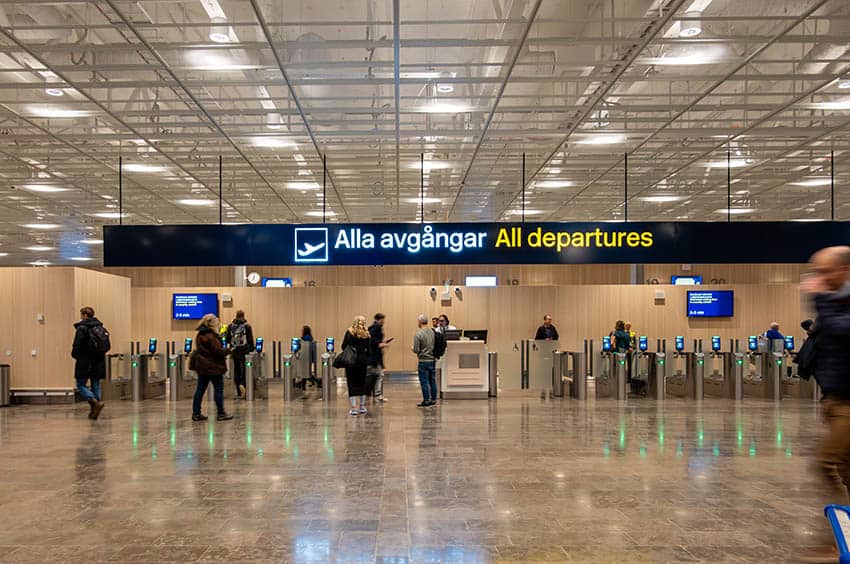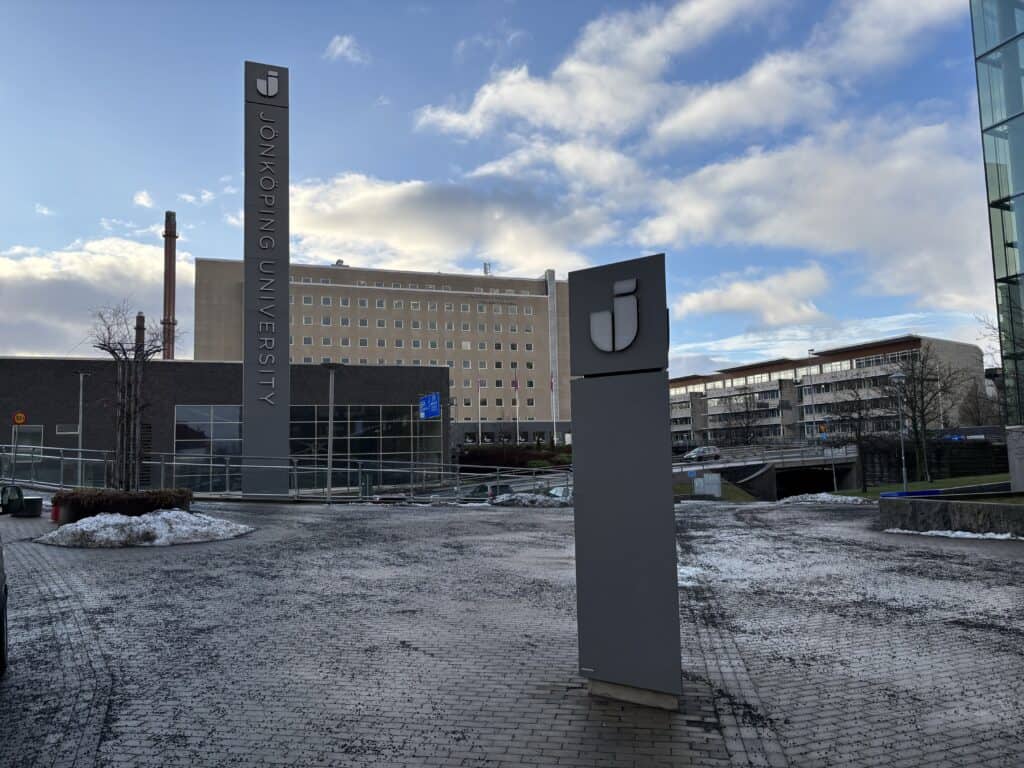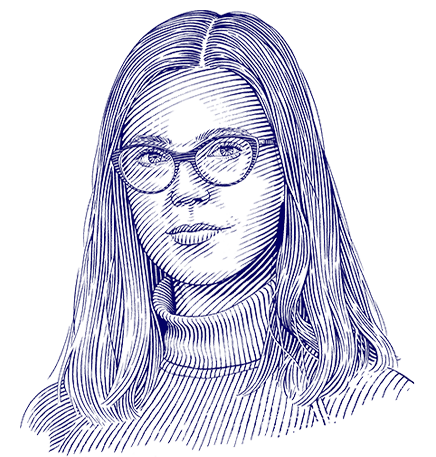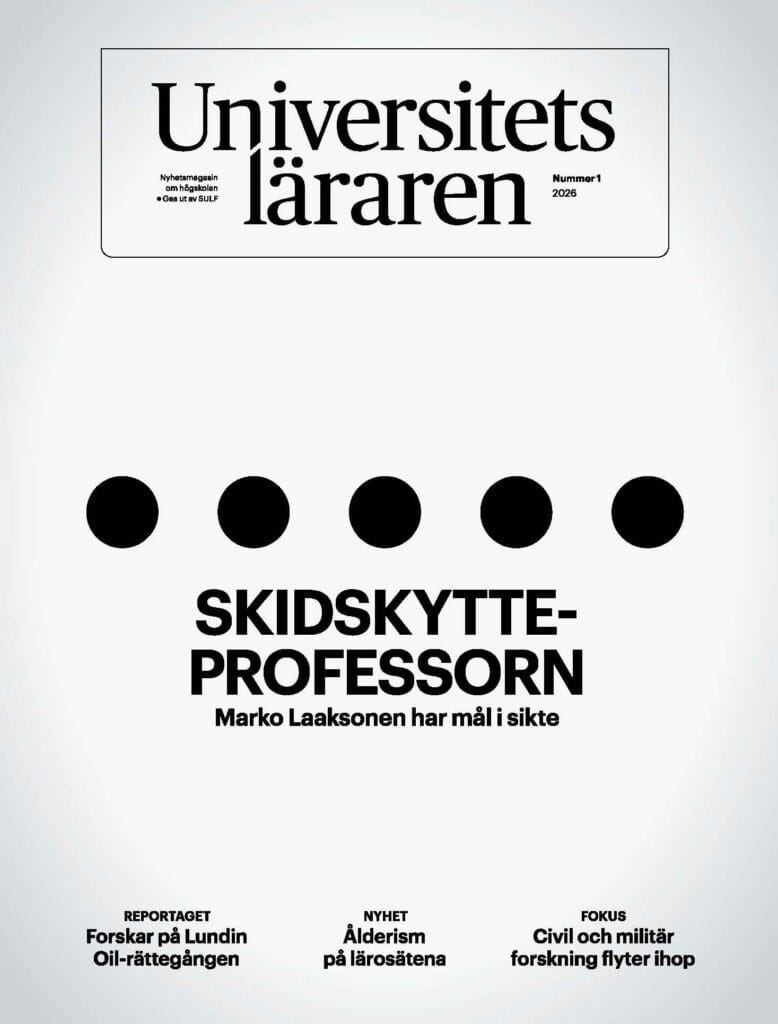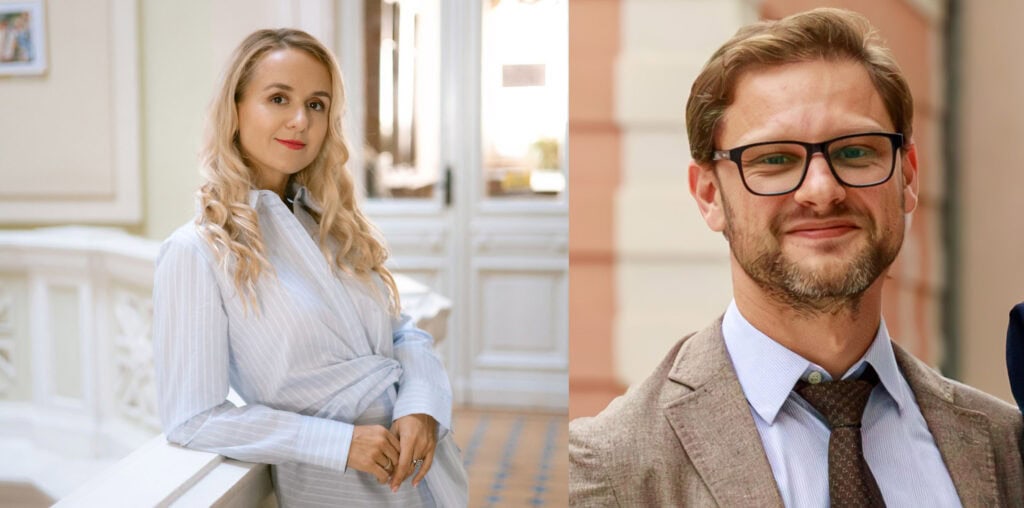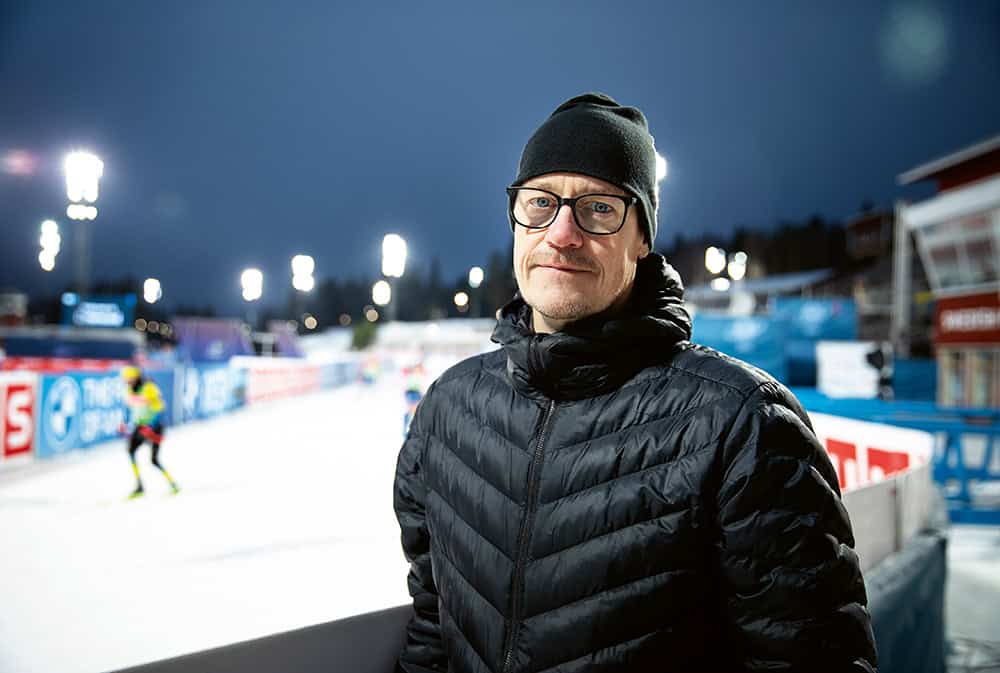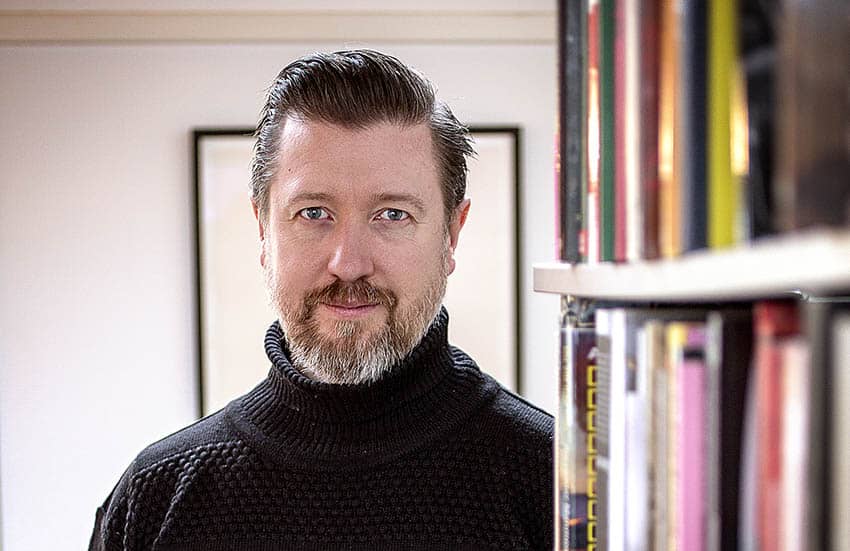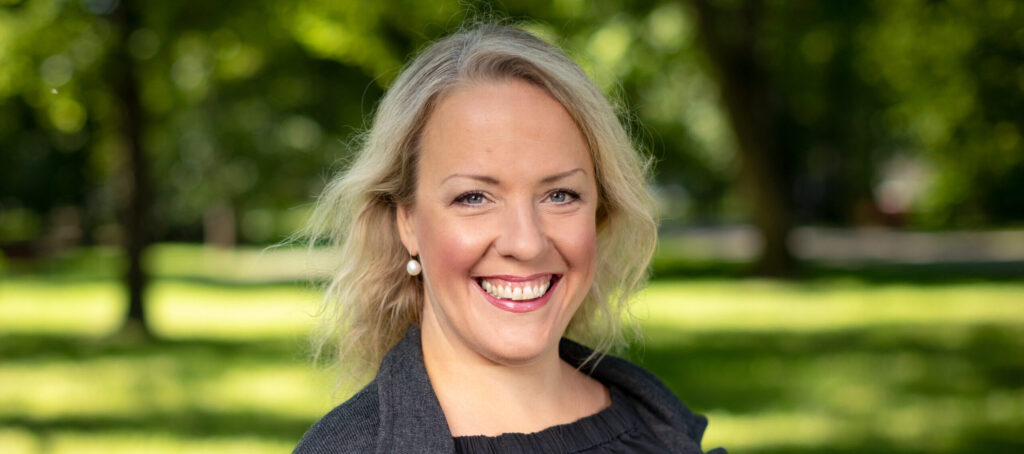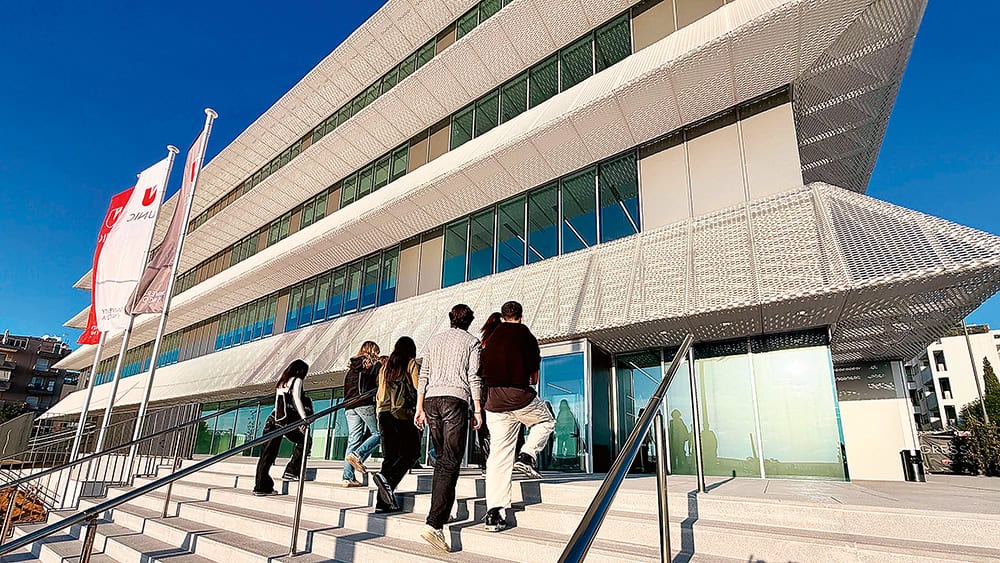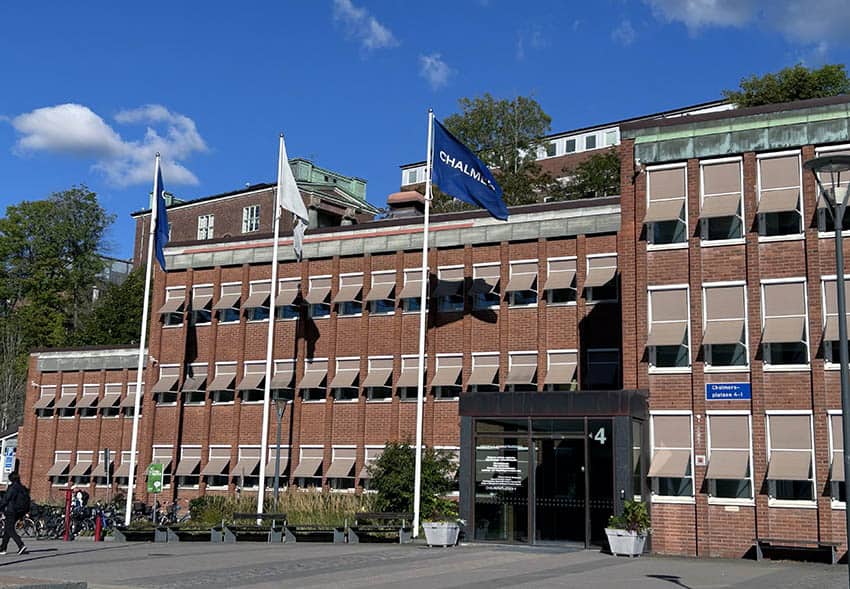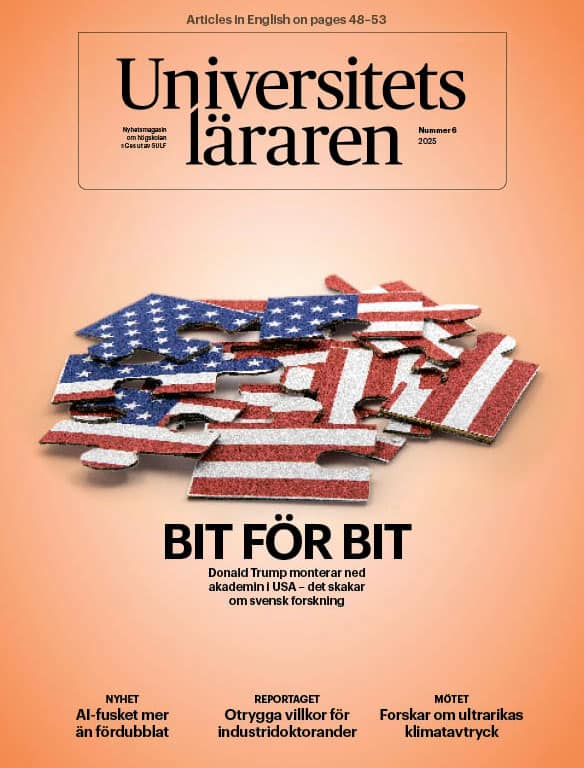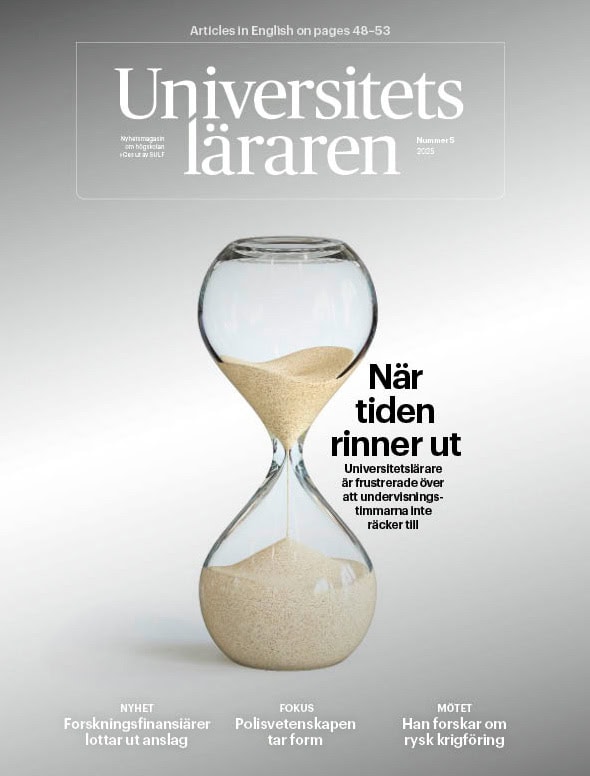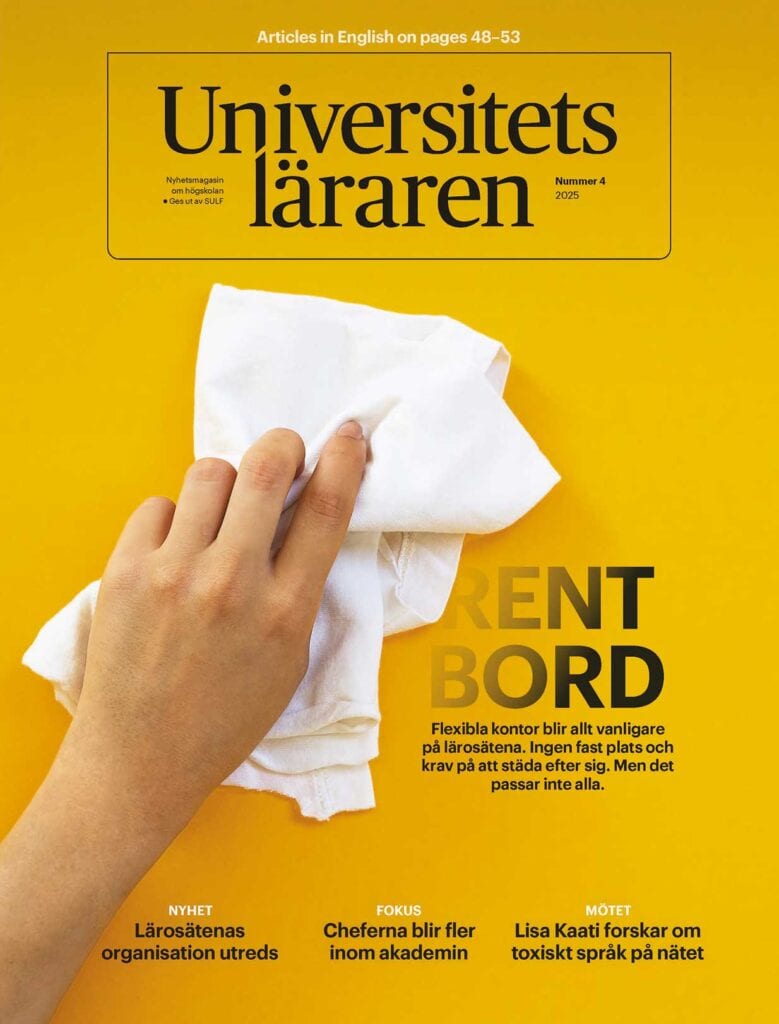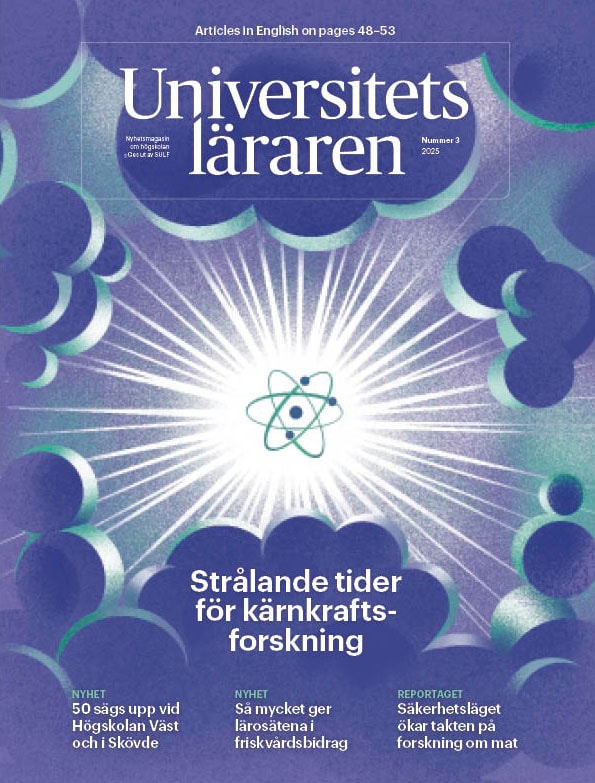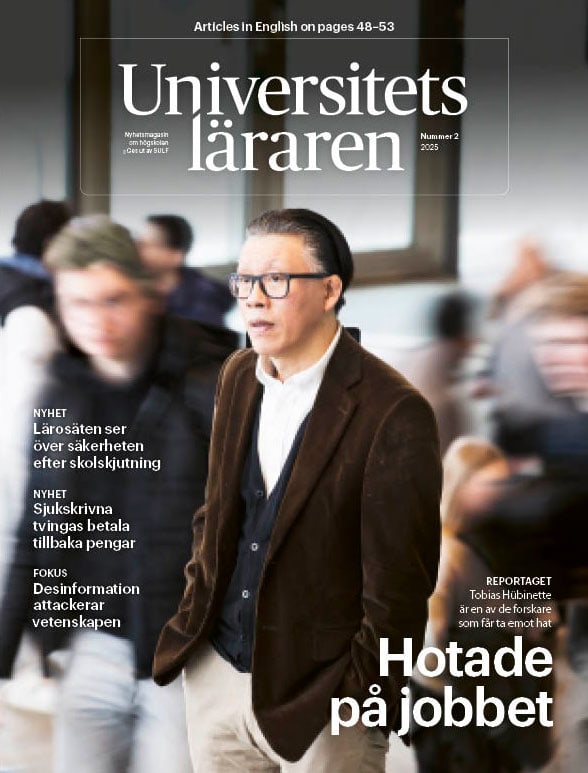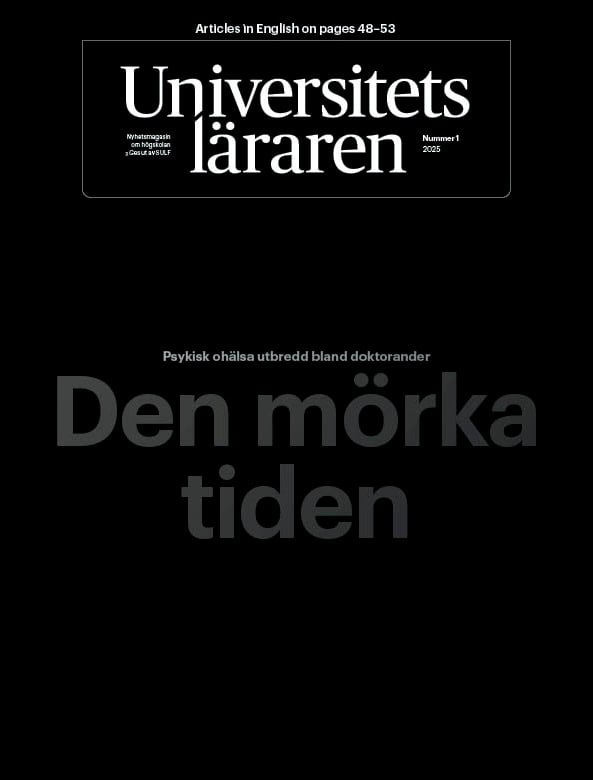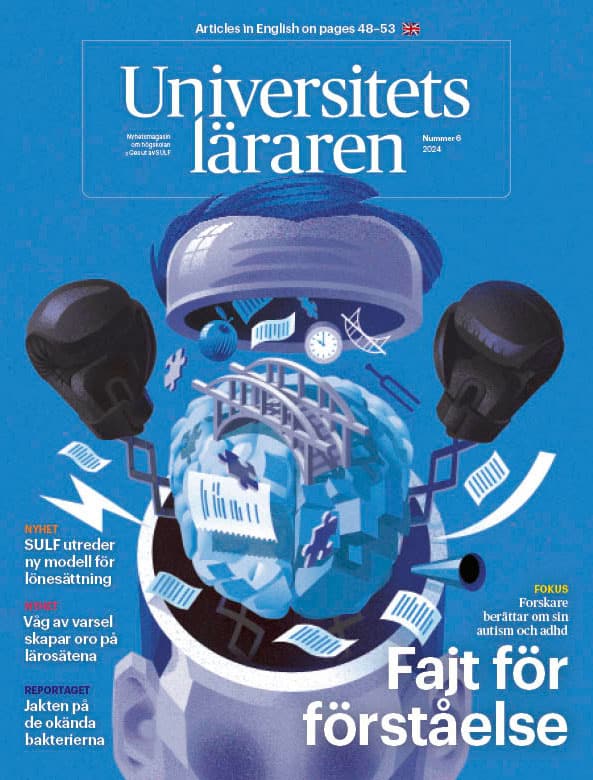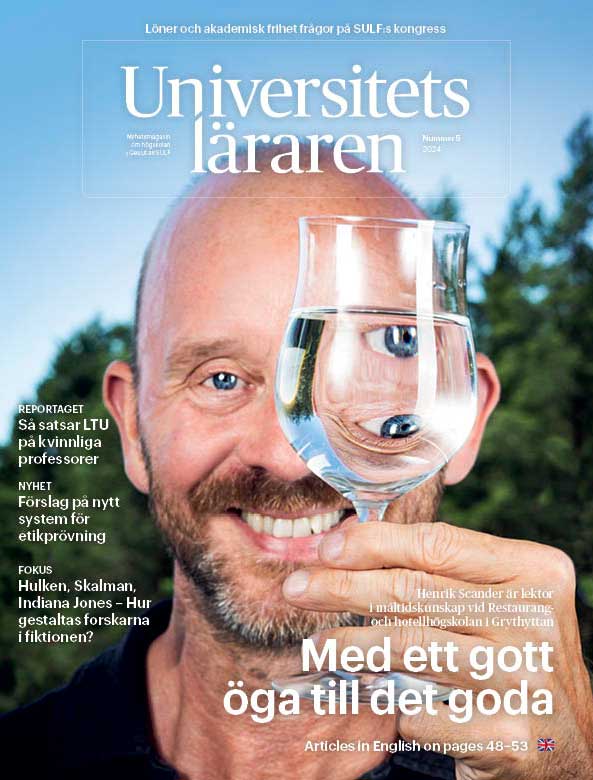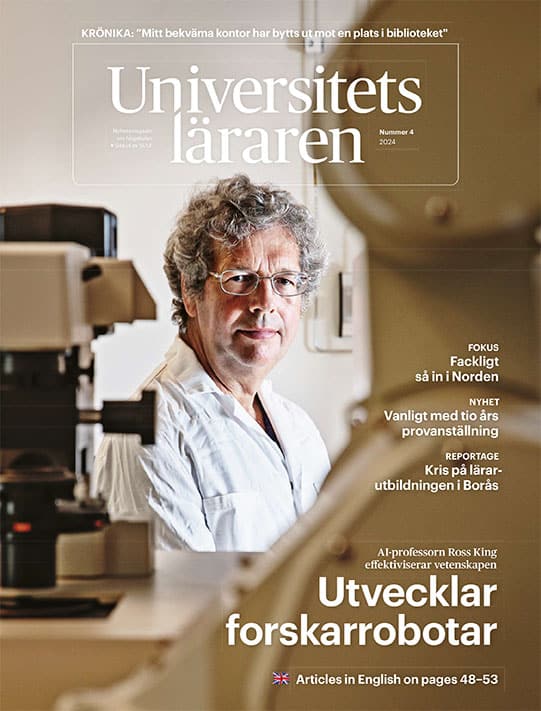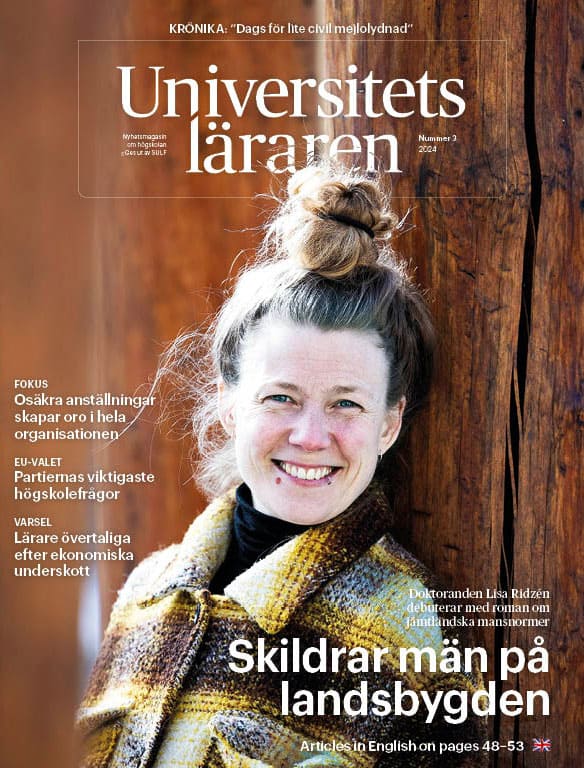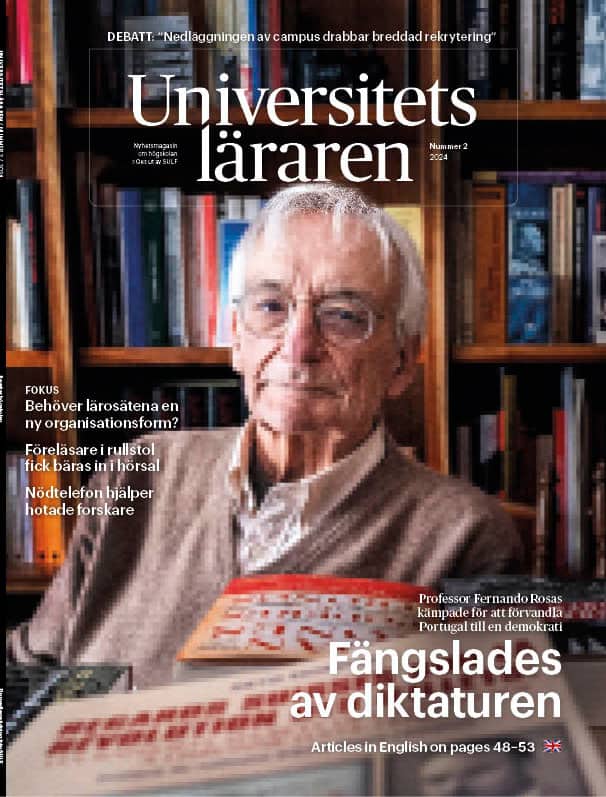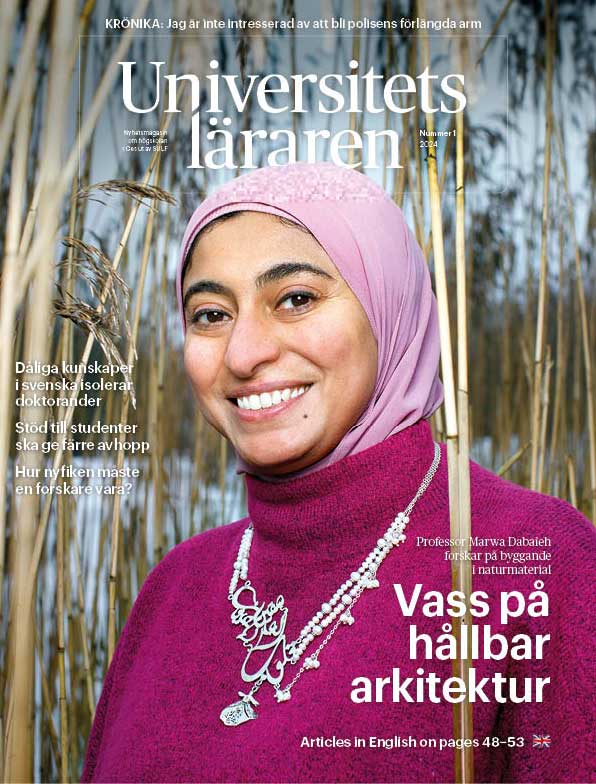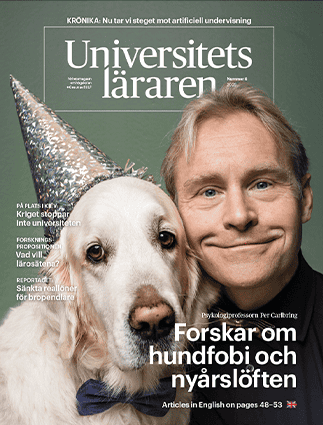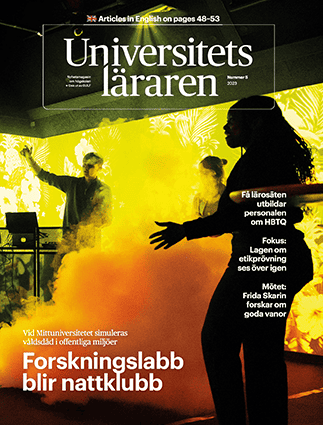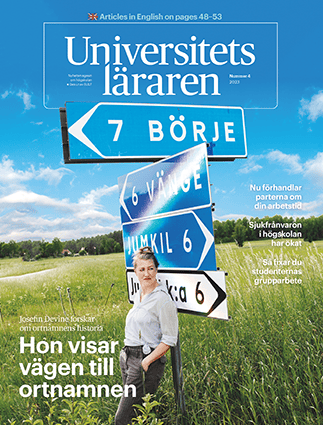The Migration Court in Luleå has ruled in favour of SULF member Alex Adusei Agyemang and granted him a permanent residence permit. He had appealed after his application had been rejected by the Migration Agency who wanted to expel him to Ghana.
According to the rules, foreign doctoral candidates who have had a residence permit for research studies for four years and conducted research studies in Sweden will be granted permanent residence permits.
The Swedish Migration Agency’s reason for denying his application was that the researcher had been working at the University of Barcelona for six months. The Migration Court, on the other hand, considered that he had been connected to Sweden all the time because the period in Barcelona was compulsory for his educational programme, he was paid and paid taxes in Sweden and also had continuous contact with his research group in Sweden.

“Researchers have to collaborate and this sometimes leads to travel to other places. This is not done for their own personal benefit but for the benefit of the society we live in. When you dedicate your life and your travels to research so that you can help the community, it is unfair that you should be punished for it”, says Alex Adusei Agyemang.
Plans to stay
His field of neonatal medicine concerns premature children.
“Some of these children experience bleeding in the brain. My thesis was focused on developing a treatment, but in my continued research I also want to identify strategies that can prevent these bleeds.”
Alex Adusei Agyemang took his PhD at Lund University in March 2019 and he plans to stay in Sweden and contribute to the Swedish health care system being able to help these children better.
Several similar cases
“At SULF we are very happy about this judgment because we have several cases where doctoral students have been denied permanent residence permits for the same reason, that they have conducted a period of their postgraduate education in a country other than Sweden. In this particular case, time abroad was a compulsory part of the postgraduate educational programme, so it felt very strange that he would be penalised for this compared to other doctoral candidates”, says Åsa Rybo Landelius, official at SULF.

In addition, she points out that it is common for postgraduate students to spend time at a university abroad.
“SULF has worked on these issues for many years and gives advice to members who end up in similar situations. It will be very satisfying to be able to refer to this judgment.”
KI case will set a precedent
The Migration Agency has chosen not to appeal this judgment so it has entered into legal force.
“However, it is unclear if this means that the Migration Agency intends to follow this court ruling in the future”, says Åsa Rybo Landelius.
A parallel case is that of the KI doctoral candidate who the Migration Agency wants to expel and which will be heard at the Migration Supreme Court during the autumn.
“This case is similar to the Luleå judgment but is not exactly the same. So it will be very interesting to see what the court decides there, because this judgment will set a precedent.”
Government proposal “a step in the right direction”
In a new Council on Legislation draft proposal, the government suggests better conditions for foreign nationals researching or studying in Sweden.
“These proposals seem to be a step in the right direction, but I have a hard time seeing that they will make such a big difference in practice”, says Åsa Rybo Landelius
Primarily, the proposal means that it will be possible for researchers, doctoral candidates and other students who have completed their research or education to stay for a year to look for work.
“Researchers do not have that opportunity right now, so this will be the most important improvement.”
Students and doctoral candidates have previously been given this opportunity but only for a six-month period.
More improvements proposed
Another possible improvement included in the new bill is to make it easier for doctoral candidates and researchers to travel between EU countries and conduct research or postgraduate education.
“However, it doesn’t say anything about the opportunities for doctoral candidates to be granted permanent residence permits”, Åsa Rybo Landelius points out.
The Council on Legislation remit also addresses the fact that there should be increased opportunities to apply for a new residence permit without leaving the country.
“This would be very good for our members. But as far as I can see it only concerns guest researchers. For example, this does not apply to a person who has worked in Sweden with a work permit and then becomes a doctoral candidate. This person still does not have the opportunity to stay in Sweden and apply for a residence permit for research studies but must leave the country to make the application.”
The Government also writes in the Council remit that there must be the opportunity of longer residence permits, up to two years.
“But there again I cannot see the difference from the situation today for our groups. Doctoral candidates, postdoctoral fellows and researchers can already obtain a residence permit for up to two years. In particular, SULF would like to see doctoral candidates obtaining a residence permit for the entire postgraduate education period of four years at a time”, says Åsa Rybo Landelius.
The Council on Legislation remit does not take up the rules for permanent residence permits for doctoral candidates and researchers at all.
“Yes, there is a lot left to do to improve the conditions for these groups. But perhaps it is primarily Migration Agency practices that need to be improved.”
SULF to meet with Migration Agency
Representatives of SULF will meet with the Migration Agency during the autumn.
Then, among other matters, they will clear up the uncertainty regarding permanent residence permits and the new rules that doctoral candidates cannot apply for permanent residence until 14 days before their fixed-term residence permit expires.
This, in combination with long processing times, causes major practical problems for doctoral candidates who, for example, cannot attend conferences in other countries without risking refusal of entry back to Sweden before their residence permit has been renewed.
“We will continue to raise these issues. SULF would like to see that the Swedish Migration Agency does not look for reasons to reject doctoral candidate applications as Sweden wishes to be an attractive country for highly-educated people”, says Åsa Rybo Landelius.
If the proposal is accepted by the Swedish Parliament, the new regulations will enter into force on 1 January 2020.

